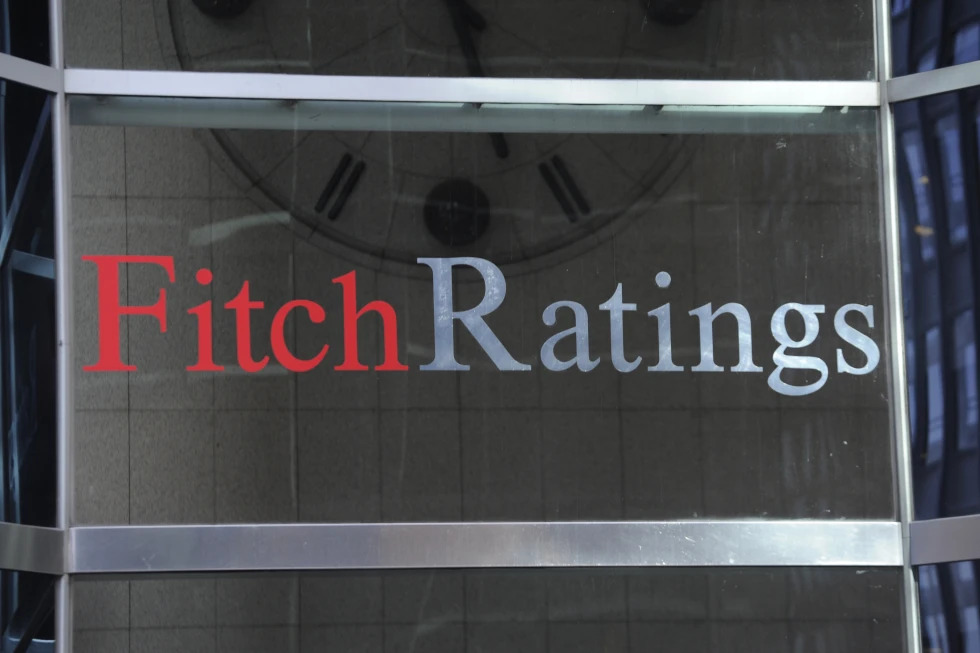US Credit Rating Downgraded by Fitch Due to Rising Debt and Political Polarization
The Downgrade of US Credit Rating: A Deep Dive into Fitch’s Decision and its Implications
On August 1, 2023, Fitch Ratings, one of the "Big Three" credit rating agencies, downgraded the United States government’s credit rating from AAA, the highest possible rating, to AA+. This decision, only the second downgrade of the US credit rating in history, sent ripples through the global financial markets and sparked intense debate about the nation’s fiscal health and political stability. While the new rating remains within investment grade, the downgrade signifies concerns about the trajectory of US debt and governance.
Fitch cited several key factors for its decision, primarily focusing on the increasing debt burden at all levels of government – federal, state, and local – and the perceived "steady deterioration in standards of governance" over the past two decades. The agency pointed to repeated political standoffs over the debt ceiling and the increasing polarization in Washington as evidence of this erosion of governance. These factors, according to Fitch, raise concerns about the government’s ability to effectively manage its finances and respond to economic challenges.
The specter of political instability also played a role in Fitch’s assessment. The January 6, 2021 insurrection at the US Capitol was specifically mentioned as a factor contributing to the downgrade, reflecting concerns about the resilience of American democratic institutions. While the Biden administration has emphasized the subsequent recovery of governmental stability, Fitch appears to view the event as a significant indicator of underlying vulnerabilities.
Adding to Fitch’s concerns is the agency’s economic outlook for the United States. Fitch anticipates a "mild recession" towards the end of 2023 and beginning of 2024. This projection contrasts with the Federal Reserve’s revised outlook, which anticipates slower growth but avoids predicting a recession. The divergence in these economic forecasts underscores the inherent uncertainty surrounding the US economic trajectory and contributes to the overall assessment of creditworthiness.
The Biden administration has sharply criticized Fitch’s downgrade, labeling it "arbitrary" and based on outdated data. Treasury Secretary Janet Yellen highlighted the robust recovery of the US economy from the pandemic recession, marked by low unemployment and solid growth in the second quarter of 2023. The administration contends that these positive economic indicators contradict Fitch’s negative assessment and demonstrate the underlying strength of the US economy.
The immediate impact of the downgrade on borrowing costs remains uncertain. Historically, the vast size and stability of the US economy, combined with the global demand for US Treasury securities as a safe haven asset, have kept borrowing costs relatively low. However, a lower credit rating can potentially increase the cost of borrowing for the government over the long term. The 2011 downgrade by Standard & Poor’s, following a similar debt ceiling standoff, provides a precedent, with the Government Accountability Office estimating increased borrowing costs of $1.3 billion that year.
However, it’s important to note that the impact of a credit rating downgrade can be complex and varies depending on several factors, including market conditions and investor sentiment. The overall size and liquidity of the US Treasury market, along with its perceived safety, can mitigate the effects of a downgrade. Nevertheless, the Fitch decision raises important questions about the long-term fiscal health and political stability of the United States, underscoring the need for bipartisan efforts to address the nation’s growing debt burden and restore confidence in its governance.
Fitch’s decision to downgrade the US credit rating has ignited a renewed debate about the fiscal health and political stability of the nation. While the downgrade itself has not immediately resulted in a significant increase in borrowing costs, it serves as a warning sign about the potential consequences of continued political polarization and escalating debt levels. The contrasting views of the Biden administration and Fitch highlight the complex and nuanced nature of assessing sovereign creditworthiness.
The downgrade emphasizes the importance of addressing the underlying issues contributing to the negative assessment. The repeated political standoffs over the debt ceiling and the growing polarization in Washington have eroded confidence in the government’s ability to manage its finances effectively. These issues, combined with rising debt levels, pose a long-term threat to the fiscal stability of the United States.
The Biden administration’s defense of the US economy, pointing to strong growth and low unemployment, underscores the positive aspects of the current economic situation. However, Fitch’s concerns about the potential for a recession and the long-term trajectory of the debt cannot be ignored. Balancing these conflicting perspectives is crucial in developing a comprehensive understanding of the nation’s fiscal health.
The long-term implications of the downgrade remain uncertain. While a lower credit rating can potentially increase borrowing costs over time, the immediate impact has been muted by the continued demand for US Treasury securities. The size and liquidity of the US Treasury market, combined with its perceived safety, provide a degree of insulation against the negative effects of a downgrade.
The downgrade provides a crucial opportunity for a national conversation about the nation’s fiscal future. Addressing the underlying issues of rising debt and political dysfunction is essential to restoring confidence in the US government’s ability to manage its finances responsibly. This will require bipartisan cooperation and a long-term focus on fiscal sustainability.
The debate surrounding the downgrade highlights the importance of independent credit rating agencies in providing objective assessments of sovereign creditworthiness. While the agencies’ methodologies and judgments can be subject to debate and criticism, their independent perspective provides valuable insights for investors and policymakers. Fitch’s decision, regardless of one’s agreement with its specific conclusions, serves as a catalyst for important discussions about the nation’s fiscal health.
In conclusion, Fitch’s downgrade of the US credit rating serves as a wake-up call about the need to address the nation’s growing debt and political dysfunction. While the immediate economic impact may be limited, the long-term consequences of inaction could be significant. The downgrade should be viewed as an opportunity to foster bipartisan dialogue and implement policies that promote fiscal sustainability and restore confidence in the US government.
Share this content:












Post Comment